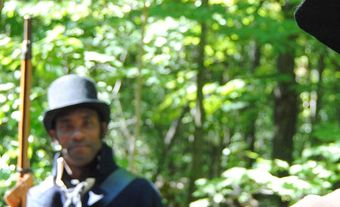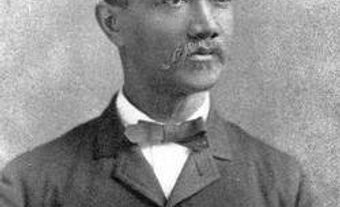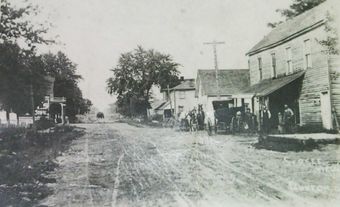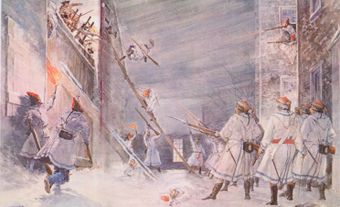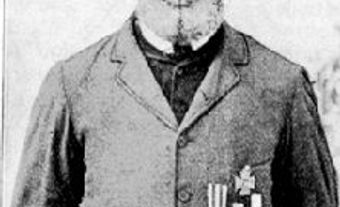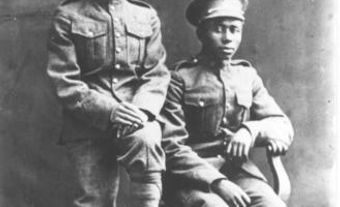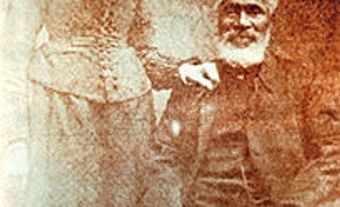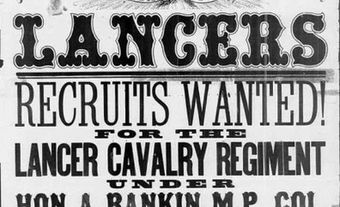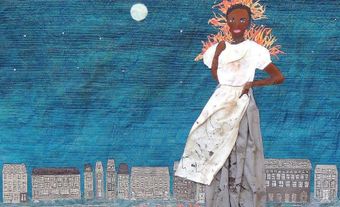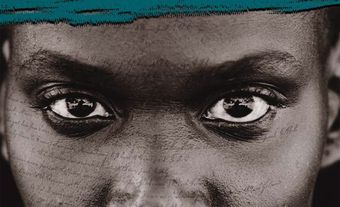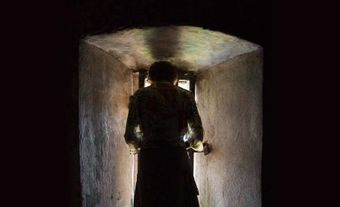Anderson Ruffin Abbott, doctor, surgeon (born 7 April 1837 in Toronto, Upper Canada; died 29 December 1913 in Toronto, ON). Abbott was the first Canadian-born Black person to graduate from medical school. He served the Union army as a civilian surgeon during the American Civil War.

Early Life and Family
Anderson Abbott was born to an affluent family in Toronto, Upper Canada. His parents, Wilson Abbott and Ellen Toyer, both free from enslavement, owned and operated a general store in Mobile, Alabama. When the city passed a law that required all free Black persons to provide bonds signed by two white men as proof of the free person’s good behaviour, Wilson Abbott refused to comply. After learning that his store would be ransacked, he left Mobile with his wife and children. The family settled briefly in New Orleans and New York, before moving to Toronto in 1835. The Abbotts gained wealth and standing in their new home, purchasing nearly 50 properties in the Toronto area.
Education
Anderson Abbott was educated at the Buxton Mission School, a racially integrated school near Chatham, Canada West, that was noted for its superior education. The school was part of the Elgin Settlement, a safe haven for refugees from enslavement established in 1849. Later, he studied at the Toronto Academy, where he was an honours student, followed by Oberlin College in Ohio. In 1857, Abbott enrolled at University College in Toronto to study chemistry. In 1858, he began studies at the Toronto School of Medicine, which later became affiliated with the University of Toronto. He then completed a supervised placement with Dr. Alexander Augusta, a family friend and leader of the Black community in Toronto who had a surgical practice and drug store in the city. In 1861, Abbott was licensed to practise medicine, becoming the first Canadian-born Black doctor in Canada.
American Civil War
During the American Civil War, Anderson Abbott applied for a position as assistant surgeon in the Union Army but was unsuccessful. In June 1863, however, he signed a contract as a civilian surgeon and began working at the Contraband Hospital (later Freedmen’s Hospital) at Camp Barker in Washington, DC. The hospital cared for Black soldiers and freedmen and was staffed by Black doctors and nurses under the direction of Alexander Augusta, by then a commissioned officer in the Union Army. Abbott later served in other Washington hospitals and became well-known in the capital. Both he and Augusta attended a function at the White House, where they met President Abraham Lincoln and his wife. Abbott was among the group of doctors that cared for the dying president after he was shot in April 1865.
Medical Career

In 1866, Anderson Abbott returned to Canada. He married Mary Ann Casey in 1871 and moved to Chatham. There he was appointed coroner for Kent County. He was also a public advocate for integrated schools. (See also Racial Segregation of Black Students in Canadian Schools.) Abbott moved his practice to Dundas, Ontario, in 1881, and later moved to Oakville and then Toronto. In 1894, he accepted an appointment in Chicago, Illinois, as surgeon-in-chief of Provident Hospital, a training hospital for Black nurses; he became medical superintendent of the hospital in 1896. After returning to Toronto in 1897, he spent his later years writing on Black history and other topics.
Legacy
In 2008, a provincial plaque commemorating Anderson Abbott was unveiled by the Ontario Heritage Trust and the Chatham-Kent Black Historical Society. In 2023, the Toronto Public Library and the Canadian Commission for UNESCO announced that the Anderson Ruffin Abbott archive was added to the Canada Memory of the World Register. The Register preserves and promotes access to documentary heritage.

 Share on Facebook
Share on Facebook Share on X
Share on X Share by Email
Share by Email Share on Google Classroom
Share on Google Classroom


